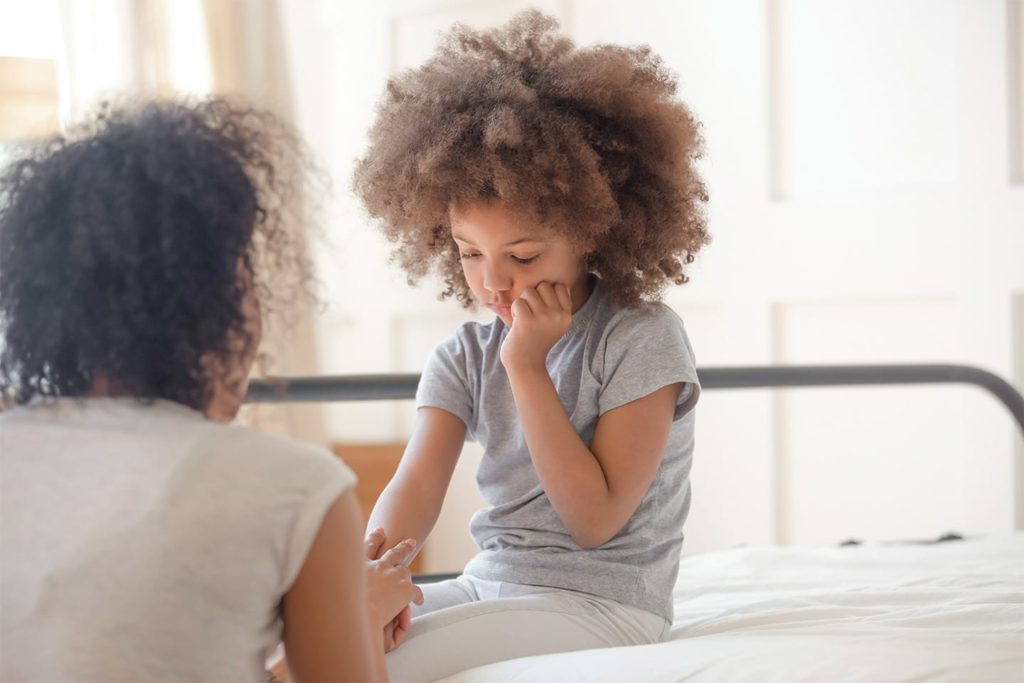Sadder But Wiser
For obvious reasons, the past year and a half has shown a spike in mental health issues such as depression, anxiety, stress, and grief.
And, unfortunately, children are not immune to these emotional concerns. While it might be easier to assume that the “carefree nature of childhood” overrides true grief in children, this is not always the case. Like adults, kids can grieve and grieve deeply and must learn to work through loss. Here is a look at grief in children and some of the best ways to help your child cope.
“Grief is usually brought on by a loss of something valuable – a source of support, security, or endearment,” says Chris Ownby, a healthy relationship facilitator at First Things First. “Kids can grieve over all kinds of losses, from the death of a loved one to a pet that runs away, a friend moving away, a missing stuffed animal, or parents separating. It’s important to remember that if it’s a big loss to them, then it’s a big cause for grief.”

Talk with them.
Ownby says that the best way to differentiate between when children are experiencing real grief and just having a bad day is through “caring conversation” and getting them to open up and talk about how they are feeling. This also coincides with helping them get through that grief.
“It obviously takes a great deal of compassion and empathy,” he explains. “I think we have to open up the conversation for them by asking how they are feeling and if they have any questions about what happened, and by letting them know you are there to help them answer anything you can. If you think about it, this is how most adults process grief – they need to talk about it with people they trust. Children aren’t so different.”
Be patient.
Different people grieve in different ways and in different timeframes. Your kid needs to take as long as he or she needs to in order to feel better. Throughout the process, let them know that you’re there for them. It can also be helpful to tell children about your own pain and sadness, so that they understand that such feelings are normal.
“Just like adults, it often takes time for kids to process and open up about what they’re feeling and thinking about the loss,” Ownby adds. “Walking with them in their grief means we walk at their pace.”
Don't minimize it.
Any parent knows how hard it is to watch their child suffer, especially while experiencing their own grief. But Ownby emphasizes that although you can help your child through their sadness, you can’t just make it all go away and shouldn’t try to do so.
“We need to understand that our job is not to take the grief away,” he says. “We need to remember that grief is not only a natural process, it’s also a healthy one. It’s good for all of us to go through the process of grief when we experience a loss.”
He points out that telling a child something that covers up or waters down the source of the grief, such as “the dog found a better home” after the death of a pet, can be counterproductive.
“At some given point, every child is going to experience grief and probably more than once in their childhood. Experiencing loss is a part of life,” Ownby says. “Our job, as parents, isn’t to shield or try to magically erase the grief. It’s to help our children work through grief in a healthy way and come out on the other side, having grown from it.”
Just like adults, it often takes time for kids to process and open up about what they’re feeling and thinking about the loss.”
Chris Ownby


Chris Ownby
Healthy Relationship Facilitator, First Things First

